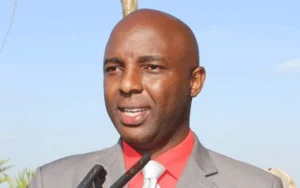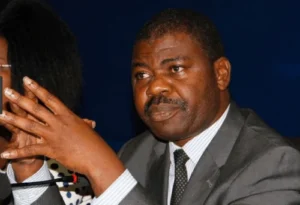Concerns have been raised by the Controller of Budget regarding the composition of a committee tasked with auditing pending bills, shedding light on fundamental issues surrounding transparency and accountability in public finance management.
This issue has far-reaching implications for individuals, businesses, and the overall functioning of government institutions and the economy at large.
Read also: The Dam Scandal: Failed Projects that left Kenya Drowning in Debt
The committee, approved by President William Ruto in June, was established to address government liabilities dating back from 2005 to 2022.
However, it has come under investigations primarily due to the exclusion of essential agencies responsible for overseeing the prudent utilization of taxpayer funds.
![President William Ruto chairs cabinet meeting on June 27, 2023.[Photo/PCS] Pending bills](https://news.switchtv.ke/wp-content/uploads/2023/09/unnamed-3.webp)
The Controller of Budget, Jane Kamau, expressed her concerns citing that, “It is imperative that key stakeholders in public finance management, such as the Office of the Auditor General and the National Treasury, are included in this audit process. Their absence raises serious doubts about the committee’s effectiveness in ensuring transparency and accountability.”
The current composition of the committee includes members from the Attorney General’s office, the Departments of Roads, Public Works, Housing, and Urban Development, and the Public Procurement Regulatory Authority.
Read also: Petition Seeks Audit of Kenya’s Public Debt
While these entities play crucial roles, the glaring absence of institutions like the Controller of Budget, the Office of the Auditor General, and County Treasuries raises eyebrows.
This controversy unfolds as the Controller of Budget’s office intensifies efforts to secure real-time access to county accounts, particularly in an ongoing dispute with the Central Bank of Kenya over data access speed.
Subscribe to Switch TV
The lack of swift data access has raised concerns about potential collusion between unscrupulous traders and corrupt officials, which could harm genuine contractors.
















